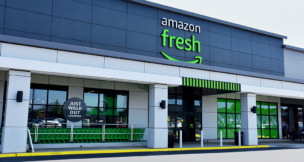Road kill
After 35 years of debate, the western bypass plan for U.S. 29 is dead
Road kill
After 35 years of debate, the western bypass plan for U.S. 29 is dead
The Charlottesville region’s most debated, most chronicled and most polarizing issue — the construction of a western bypass for heavily congested U.S. 29 — has finally been resolved.
It’s dead.
The bypass’s painful story includes 35 years of often rancorous meetings, packed public forums, campaign promises to build it or kill it, and proposals and counterproposals on its design offered up by a mix of elected officials, activists, consultants, environmentalists and highway officials.
Proponents said the bypass would alleviate congestion by allowing through traffic to dodge local traffic and about 20 traffic signals. That promise drew strong support from jurisdictions on U.S. 29 south of Charlottesville — such as Lynchburg — that already have built bypasses.
Opponents said the bypass was a waste of money that would barely reduce traffic congestion and was certain to destroy the rural beauty of Albemarle County.
The bypass was to have been a 6.2 mile road arching to the west of Charlottesville. The Virginia Department of Transportation spent $54 million buying 34 houses along the proposed bypass route and in planning costs, but not a foot of the $200 million road was ever built.
“As far as I know, the 29 bypass has been killed for purely political reasons,” says Ken Boyd, an Albemarle supervisor and strong proponent of the bypass. “I was at the Commonwealth Transportation Board meeting in Richmond when that board was told of the demise [by Aubrey Layne, Virginia’s secretary of transportation] … It looks as if VDOT will simply walk away from most of their $54 million already invested in the bypass.”
Those political reasons included a change in the makeup of the Albemarle County Board of Supervisors — which voted 5-1 in February to kill the bypass plan — and the election of a Democratic governor, Terry McAuliffe, who appointed Layne to his post in November.
But the real clincher in the long debate came earlier this year when the Federal Highway Administration told Virginia officials it wouldn’t approve the bypass because the environmental studies related to the project were too dated. The agency also said the route was too short to avoid the development that has occurred since the project was proposed decades ago.
Kristin Szakos, a Charlottesville city councilor, opposed the construction of the bypass. “My biggest problem with the bypass is that it just wasn’t committed to locally.”
Szakos believes some congestion is good for the area. “If traffic is easy, people tend to drive more … a small [amount of] congestion is not a bad thing. It makes people think about bikes and buses.”
Environmental groups, including the local chapter of the Sierra Club and the Southern Environmental Law Center, also opposed the bypass, in part because they said it would destroy the beauty of the area and pose a threat to drinking water and air quality.
On May 13, an advisory panel of local officials representing communities along U.S. 29 recommended traffic flow improvements to the Commonwealth Transportation Board.. The recommendations include a grade-separated intersection, completion of a parallel road network to the east and west of U.S. 29 and widening of a four-lane section in Albemarle County.
The recommendations also include additional money to complete four projects already partially funded in the current six-year improvement program. The total cost of the proposed improvements is $203 million.
Proposed construction projects:
- The Hillsdale Drive extension from Hydraulic Road to Holiday Drive at a cost of $10 million;
- The Berkmar Drive extension at a cost of $54 million;
- A U.S. 29/Rio Road grade-separated intersection at a cost of $81 million.
The six-year improvement program projects (needing additional funding to complete):
- Route 29 widening, Polo Grounds Road to Town Center Drive for $18 million;
- Hillsdale Drive extension for $16 million;
- Route 29/250 interchange improvements for $6 million;
- Adaptive traffic signal technology at Route 29 intersections for $3 million.
Preliminary engineering only:
- Route 29/Hydraulic Road grade-separated intersection for $10 million.
Amtrak regional service, Lynchburg to Washington, D.C.:
- Fund 25 percent for an additional train for $5 million.
The other major road development in the region — construction of the John Warner Parkway and Meadow Creek Parkway — was also a source of contention for more than three decades.
The John Warner Parkway, now in use, runs 1.4 miles from Rio Road to the city limit at Melbourne Road. The second phase of the project, the Meadow Creek Parkway, runs from Melbourne Road to the U.S. 250 bypass.
The Meadow Creek Parkway is completed but closed while the interchange at the U.S. 250 bypass is being built. It should be open next year. The two roads would provide quick access to the city from northern Albemarle and have reduced traffic on busy Rio Road and in county and city neighborhoods that were being used as cut-throughs.
P















